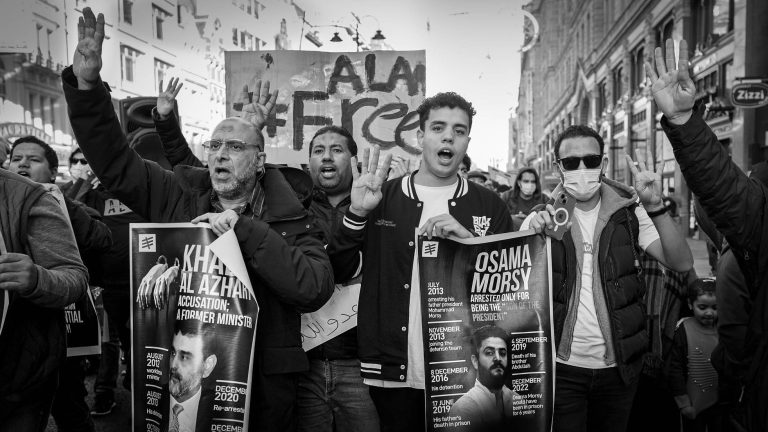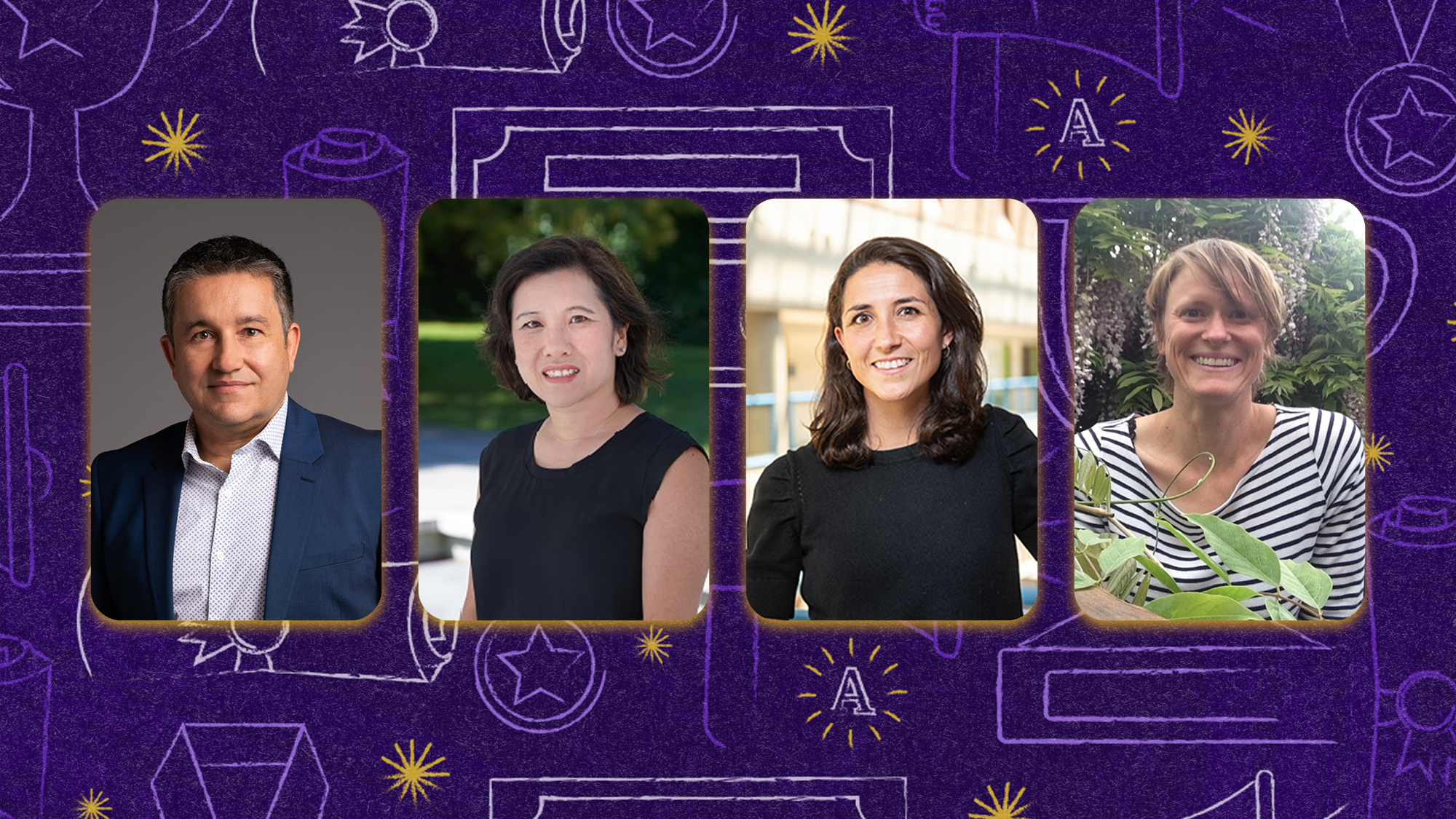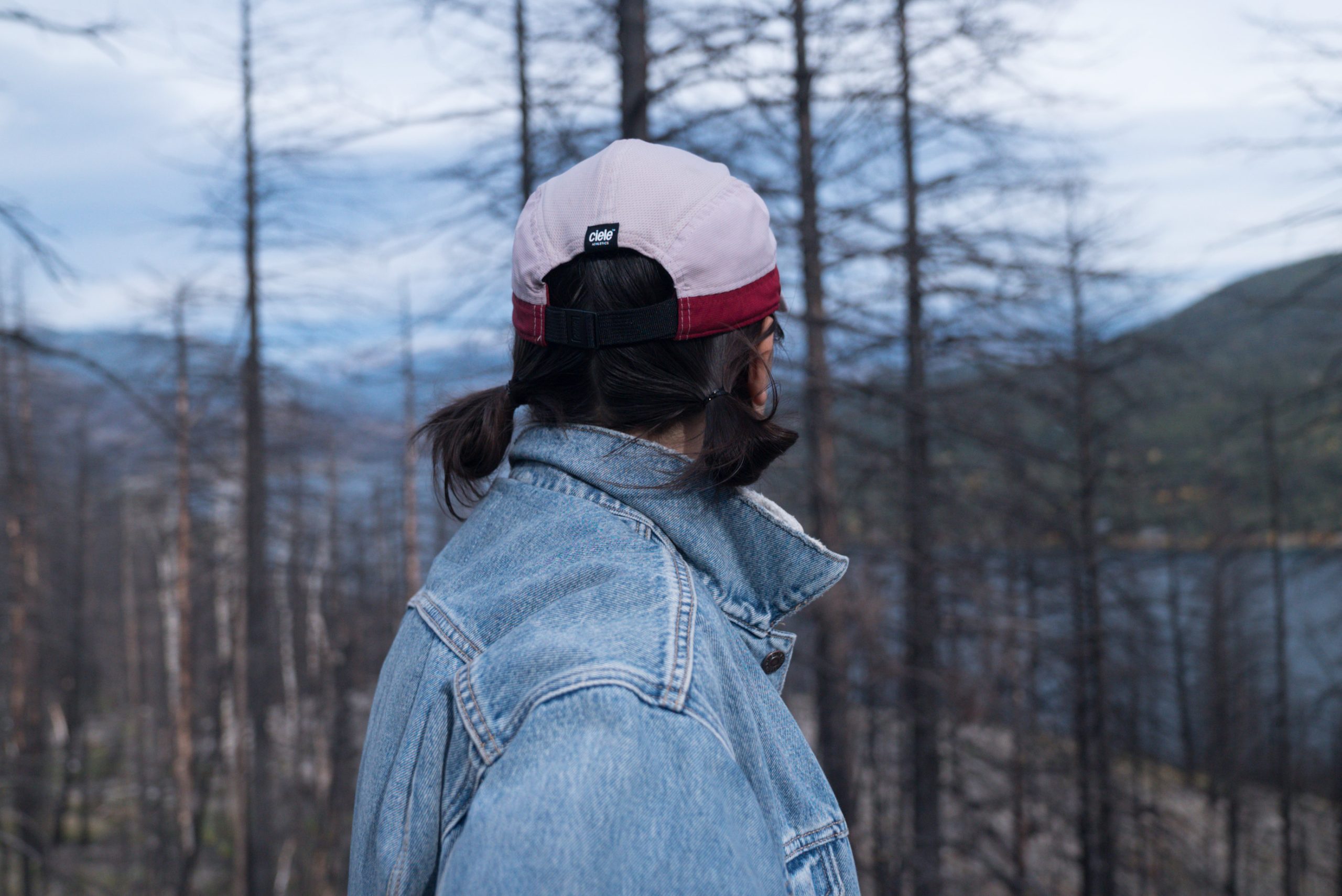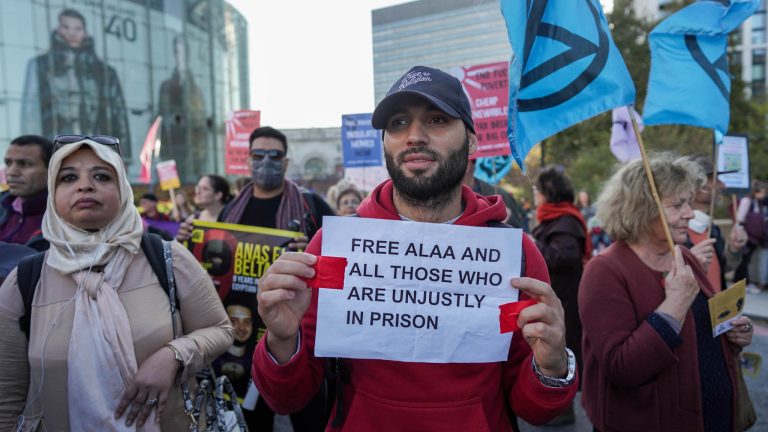

Egyptian protestors in London, UK, on November 12th, 2022. Photo by Alisdare Hickson on Flickr. CC by 2.0.
In the lead up to the recent recent United Nations Conference of the Parties (COP27), extensive criticism was levelled at the host country, Egypt, for its human rights record and imprisonment of activists.
President Abdel Fattah el-Sisi, who heads what is widely regarded as a repressive regime, was protested as he attended events in Europe in advance of the conference.
UBC Geography associate professor Naomi Klein broke down the situation in detail for The Guardian in October:
“This summit is going well beyond greenwashing a polluting state; it’s greenwashing a police state.”
“For months, Egyptians in exile in Europe and the United States have been pleading with large green NGOs to put the carnage in their country’s prisons onto the agenda of the negotiations leading up to the summit. Yet it was never prioritized.”
“The clear implication has been that the summit is too important to be sidetracked by the supposedly small matter of the host country’s shocking human rights record.”
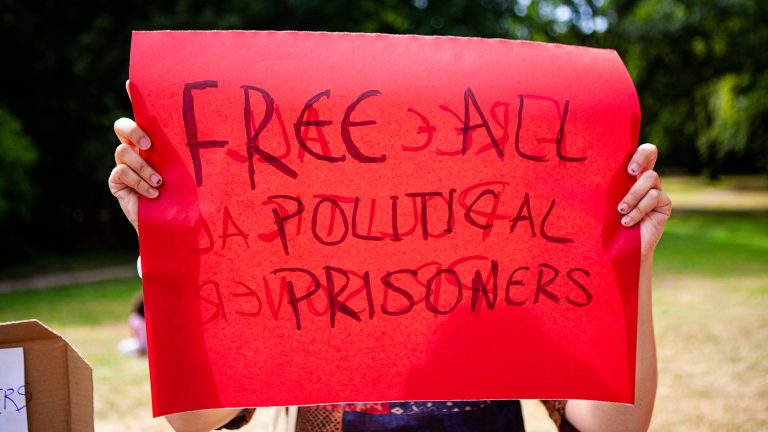

Protesters decry Egyptian President Abdel Fattah El Sisi’s welcome in Germany in July 2022, for climate talks in advance of COP27. Photo by Hossam el-Hamalawy (CC BY 2.0)
“It is the most repressive regime in the history of the modern Egyptian state,” says Mohammed Rafi Arefin, assistant professor at UBC Geography, who is quoted in the piece.
He and other researchers have been prevented from doing their work in Egypt. “There is a blockage of basic critical knowledge production. Egypt’s environmental harms now happen in the dark.”
During COP27 itself, Arefin and Klein ran a campaign to elevate the voices of Egyptian activists and communities. Under the banner of the ‘Egypt Unsilenced Collective’, they shared first-hand accounts from a group of trusted journalists, lawyers, activists and scholars on the ground in Egypt.
The rationale, as laid out in a piece for The Intercept which collected many of these perspectives after the first week of the conference, was “to try to gather information that the [Sisi] regime has been trying to suppress,” and to draw attention to the plight of imprisoned activist Alaa Abd El Fattah.
El Fattah has been in prison for almost a decade, with his family struggling to obtain reliable and regular information about his health and wellbeing. As COP27 commenced, he was on hunger strike.
In a livestream just weeks before the summit began, Sanaa Seif — filmmaker, human rights activist and sister to El Fattah — spoke about the plight of the estimated 60,000 political prisoners in Egypt. Seif herself has been arrested multiple times and imprisoned for her activism.
“[The term] political prisoner is quite misleading. It’s not all the time because of views on politics. It could be that someone is imprisoned because they made a TikTok video dancing. It’s really that random.
“Prison itself is a really intense experience. Some people stay in solitary most of the time. Some people stay in very busy cells and so there is no physical space for their bodies to exist. They have to always shrink. It’s not like anything someone in the outside world can [imagine].”
Seif herself attended the conference, and spoke out about its impact on the lives of Egyptians, noting that the hoped for level of support from attending delegates (and attendant pressure on the Sisi government) did not materialise.
“The needs of the vulnerable were strongly expressed, yes, from victims of the human rights crisis to victims of the climate crisis but we were not heard,” she wrote on Twitter.
🧵In #Cop27 I was lucky to be adopted by an inspiring movement that fought hard for years to be represented.
Sooner or later Alaa will be out & your solidarity will have been the main reason why.Yet I still think it's a mistake that 🇪🇬 was chosen to host with no conditions.
— Sanaa (@sana2) November 22, 2022
Klein is now calling for a boycott of COP28, which is scheduled to be held in the United Arab Emirates in 2023.
#COP27 recap : 🧵
❌Alaa still behind bars no consular visit.
❌Hundreds of Egyptians arrested in a nationwide crackdown.
❌Thousands of delegates surveilled and infected w/spyware
❌Weak climate agreement that protects polluters.
❌Billions in new $$ to Egypt's police state.— Naomi Klein "#COP27 Egypt Unsilenced" (@NaomiAKlein) November 21, 2022
“Civil society should announce a boycott + instead hold a true people’s summit,” Klein wrote on Twitter. “One gathering per continent to limit flying. Links to the official summit by video.”
“There can be lobbying sessions built into the COP28 program with governments who will obviously go to the UAE,” she continued. “But why should civil society expend the carbon, money, and time to join them just to declare it a failure all over again? Let’s try something new.”
In an interview with CBC’s The Current just prior to the summit in Egypt, Arefin raised his concerns about the aftermath of the conference, if enough wasn’t done to draw attention to the human rights situation in the country during COP27.
“I really hope that the world’s attention doesn’t leave Egypt when the COP concludes. Because at the end of November, when this is all over, if there are local public shows of dissent, much of the repression will happen after international delegates go home and those who have dared to speak out will suffer reprisal.”
While clarity on the nature and extent of those reprisals is still emerging, one thing is certain – neither Arefin nor Klein feel enough was done by the international community.
“Without negating the significance of progress made on Loss and Damage,” says Klein, “there is still a need to reckon with the losses suffered and the damage done to Egyptian society by the COP itself – especially in light of the World Cup in Qatar and the next climate COP planned for the UAE.”
“To prevent protests, Egypt faced extreme crackdowns across the country. There were hundreds of arrests, many people were harassed and surveilled, and warn that the worst is yet to come, now that the cameras have left.
“Meanwhile, the Egyptian regime used the summit to consolidate its own power and collect billions in new investments. It did not get the green PR coup it had hoped for, thanks to organizing by civil society groups in solidarity with Egyptian political prisoners at the COP, but many Egyptians have expressed deep disappointment that the pressure did not start earlier and was still too weak to succeed in winning the liberation of Alaa Abd El Fattah, a British-Egyptian bi-national in prison on patently absurd charges.
“If international pressure from the global climate movement is too weak to save Alaa, Egypt’s highest profile political prisoner, what hope is there of exerting enough pressure to win a habitable future?
“There is still a great deal of work to do in building the kind of counterpower this moment requires.”
